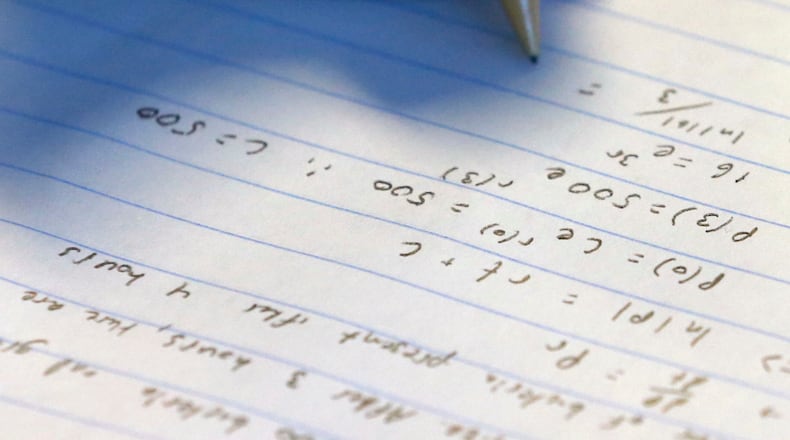My ideal time of day is l:30 in the afternoon. Everything seems better at that hour, and I feel the most alert.
So, I understand teens who complain they aren't at their academic best at 7:30 a.m. Many high schools and middle schools have pushed back the morning bell in response to research showing starting classes later improves performance.
But a new study in the Review of Economics and Statistics suggests students are more productive in the morning than in the afternoon, especially in math. University of Chicago researcher Nolan G. Pope looked at whether the scheduling of math and English courses affects grades and test scores for adolescents.
His study, "How the Time of Day Affects Productivity: Evidence from School Schedules," examined the GPAs and standardized test scores of nearly 2 million students enrolled in grades 6 through 11 in the Los Angeles Unified School District. The students attended schools that began around 8 a.m. and ended at 3:10 p.m.
Among his findings:
- Students fared better in math classes held in the morning than the afternoon. The average math score on the California Standards Test was 309.8 for kids who had math first and second periods. The average score fell to 304.5 for kids who had math in the last two periods of the day. The early morning math classes also posted higher grades.
- While English grades were better for students who had morning classes, there was no significant difference in standardized test scores between morning and afternoon classes.
- Pope found schools typically schedule AP classes during the first two periods of the day rather than the last two.
"The results show that moving some math classes to the morning and other classes, like English, to the afternoon could increase students’ GPA and test scores. The second dimension to create efficiency gains is by moving classes believed to be more important by individuals or schools to the morning," writes Pope.
In speculating why early morning math classes seem to produce greater learning, Pope says, "At least three mechanisms could be driving the difference in learning between morning and afternoon classes: changes in teachers’ teaching quality, changes in students’ learning ability, or differences in morning and afternoon class attendance. Regardless of which mechanism drives the results, since significant effects are observed for math California Standards Test scores as well as GPA, it is likely that the results measure actual differences in learning instead of teachers just being more generous graders in the morning."
He also points to the influence of stamina, saying, "It is likely that during a given day as teachers and students are in school for a longer period of time, their teaching and learning ability decreases due to fatigue."
Pope addresses the trend in later starting times, noting: "Some have interpreted the finding that later school start times increase students’ academic performance as implying that given a school start time, students perform better in the afternoon than in the morning (Carrel et al., 2011;Dills & Hernandez-Julian, 2008). However, this hypothesis has not been tested empirically. The common conclusion is that later start times increase students’ achievement because students are less sleep deprived. However, this says nothing about how teaching and learning ability change throughout the day. School start times affect the average learning in a day but not differential learning throughout the day. Therefore, the results of this paper and the school start time literature estimate slightly different effects."
About the Author
Keep Reading
The Latest
Featured




